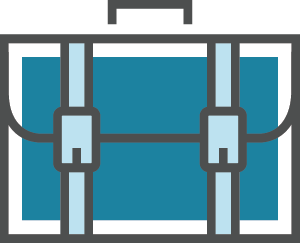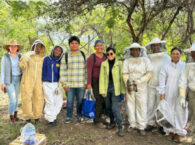Psychology students design a behavior change campaign to curb littering
Metrics
Community
Metro Transit, St. Paul, MNCommunity Size
733,098 (2018 Census Estimation)University
University of St. ThomasProgram
Sustainable Communities PartnershipYears
2017/2018Status
CompletedCase Type
Project StoriesSchool Size
Greater than 5000Focus Areas
Economic and Social InclusionRegion
EPA Region 5, USAAn individual’s decision to ride public transit may in part depend on the condition of buses, trains, and waiting areas they encounter on their trip. Litter at bus stops and train stations adversely affects environmental quality and contributes to negative perceptions of transit.
Metro Transit’s commitment to clean facilities requires a combination of social awareness and accessible amenities. The organization’s official code of conduct implores riders to “keep it clean: respect those who will ride after you. Keep your feet off the seats and take litter off with you when you leave.” In its 2040 Transportation Policy Plan, Metro Transit also acknowledges the need for added trash receptacles at bus stops. Turning its attention towards customer behavior, Metro Transit enlisted the help of psychology majors at the University of St. Thomas via the Sustainable Communities Partnership (SCP) to illustrate how to maintain clean waiting facilities.
Students in Britain Scott’s Psychology for Sustainability course approached the challenge with an emphasis on social psychology and public awareness, following the methodology of Community Based Social Marketing (CBSM). Participants collaborated on the design of a qualitative survey and a behavior change campaign, a strategy to raise awareness around a community issue, to encourage individuals to reconsider negative behaviors, and to reduce barriers to positive behaviors.
Scott’s students analyzed their survey results in order to better understand demographic attitudes toward littering. Using variables derived from the survey data, they developed a report and behavior change campaign rooted in psychological theory. The completed report explored potential littering scenarios and reviewed the cognitive barriers to proper waste disposal. The campaign recommended a number of “intervention strategies” intended to deter littering, including redesigning trash receptacles and changing the location of ticket machines.
The project provided Metro Transit with the framework for a functional campaign to curb the problem of littering. Participating students asked Metro Transit riders creative questions, including themselves and their peers, to advance progress toward improved public health and a more conscientious ridership.








